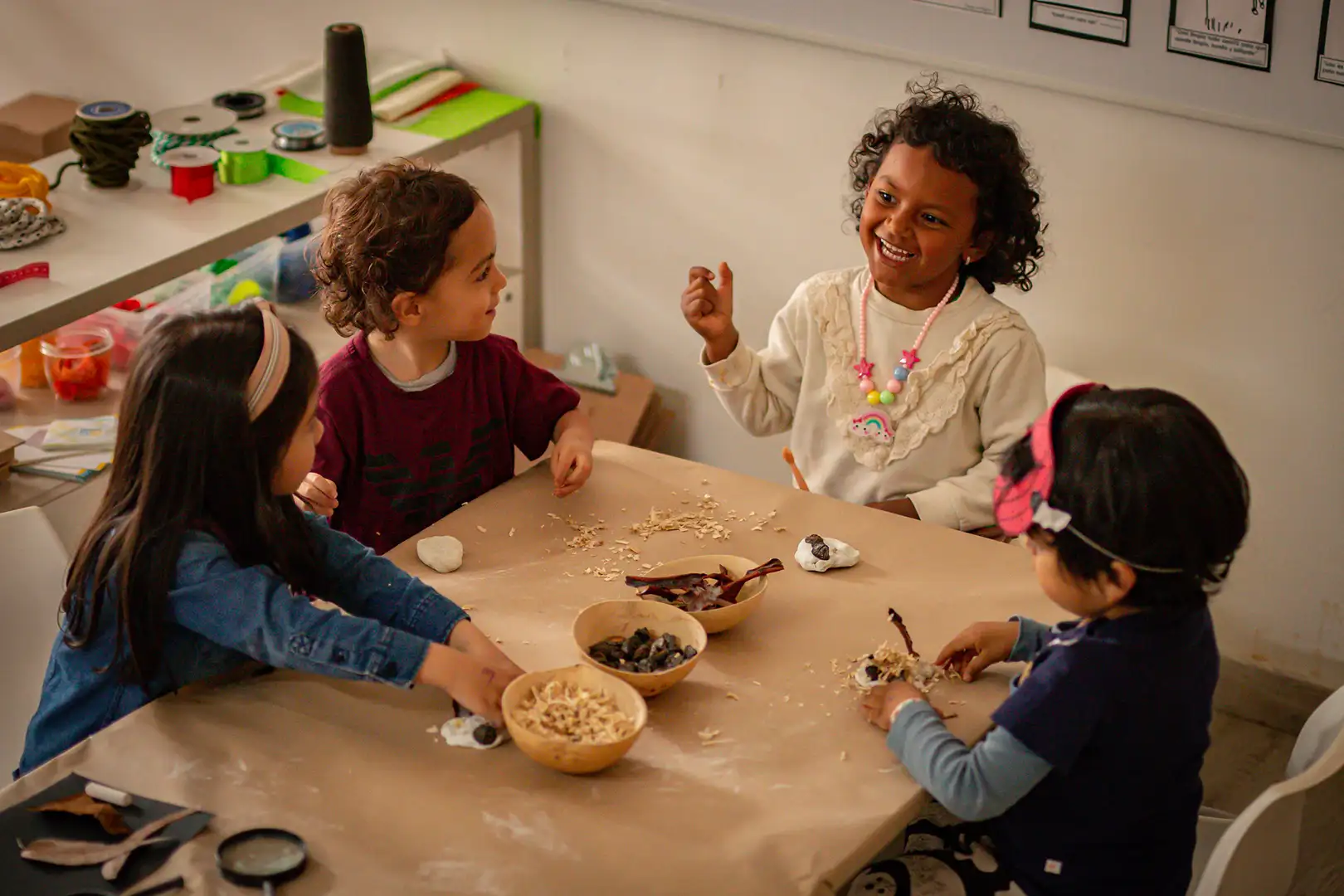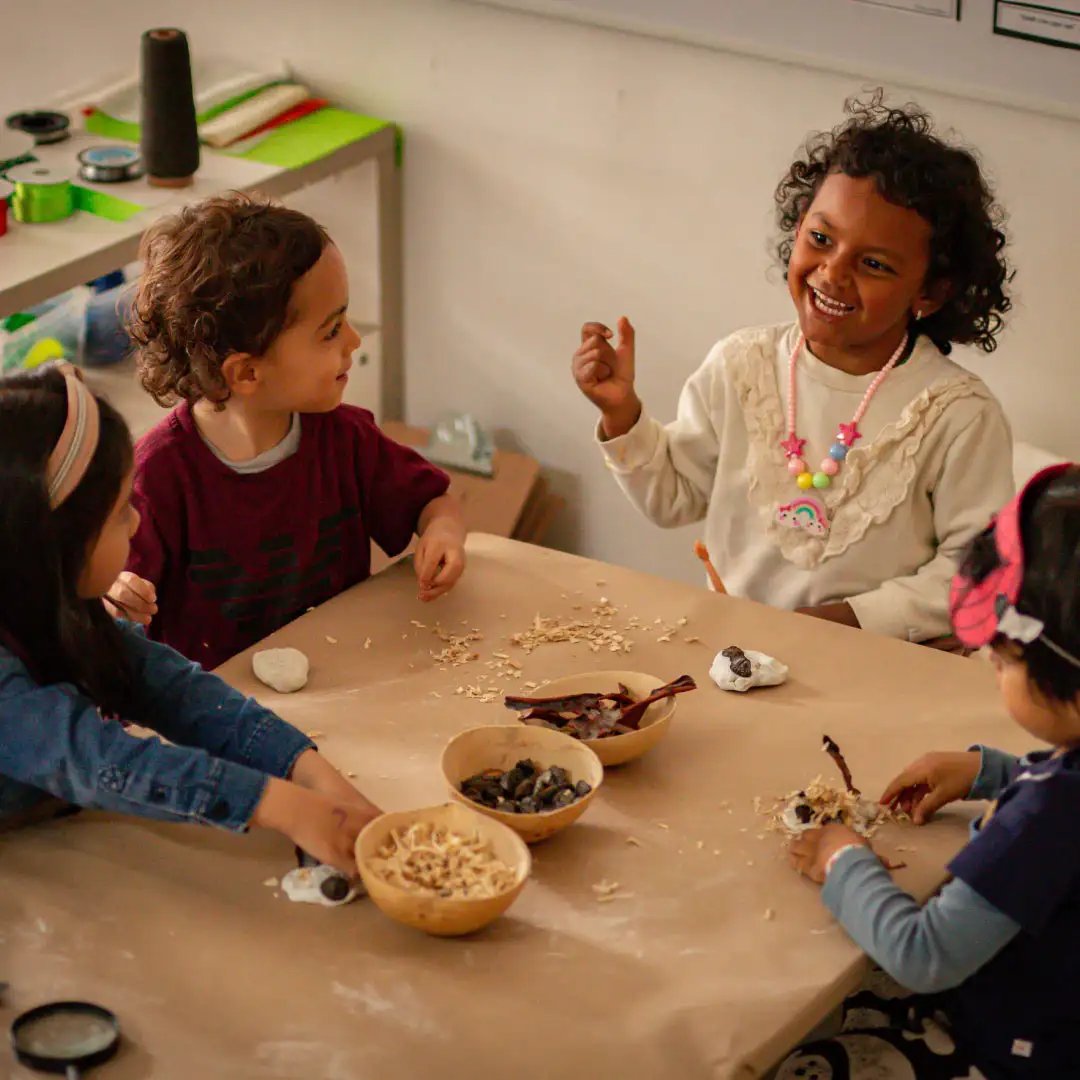
aeioTU  12 Abr. 2021 - 2 Min. de lectura
12 Abr. 2021 - 2 Min. de lectura
The Importance of the Early Childhood Educational Experience
The Importance of the Early Childhood Educational Experience
It is common that in the search for schools or universities parents care and review in detail the curriculum mesh, strategies, references about the educational institution and a plus in the development of other skills such as; languages, new technological tools, opportunities and skills needed to meet the challenges of professional or university life.
And this task is fine, yet studies have shown that Early experiences forever affect the architecture of the brain. Although genes can set the blueprint for development, it is experiences that determine the tools a child will have for the rest of her life.
Therefore, it is equally important the choice that families should make when their sons or daughters enter the gardenis essential, as the first years of life are largely determined by biological development, family, social, political and educational contexts; since these scenarios become the main axes for growth and the construction of joint learning, where the capacities of the child advance in the form of a spiral, being able to establish a meaningful and rich relationship in learning and experience with the world.
Therefore, education in this first stage is crucial for children to develop their full potential, which can be achieved by putting them in contact with an environment that generates large and continuous learning tools.
In this sense, it is necessary that families can contemplate What is the approach of discipline with which the garden has? Can I get involved in the processes? What pedagogy does it implement and what are the learning strategies?
The position around how they learn and how knowledge is built, shows some differences in the educational processes that some institutions offer, but, above all, it is important during this search, that families can recognize that each child has his or her own particularities, that he or she lives the development of his or her processes differently than others and that will experience different changes as he or she grows. It should also be borne in mind that the child through his or her relationship with the environment, his or her questions, questions, observations and explorations, among other expressions of interest, develops capacities that will help him or her in the construction of his or her knowledge.
This information reveals that early childhood development is one of the most cost-effective investments that society can make to guarantee the rights of children, build human capital and promote sustainable development.
With all these reasons as a basis, aeioTU developed the aeioTU Educational Experience inspired by the educational philosophy Reggio Emilia. A pedagogical program and its curriculum, where children learn through play, art and research, also star learning from their own interests.
An Educational Experience that has measurable results and scientific evidence, through a longitudinal study by the University of the Andes and the NIEER Institute of Rutgers University. This study showed that:
- After 8 months of children enjoying and learning with the aeioTU Educational Experience, there are significant differences in their cognitive development.
- It showed that their parents play more, use less punitive punishment and participate more in democratic spaces, which obviously improves the quality of life of children, their families and the community.
- It contributes to closing the gap between children from high and low income families.
Each child who lives the educational experience develops its full potential in aeioTU Pasadena aeioTU Liceo Boston o aeioTU Salitre makes this possible because it brings its knowledge, experience and economic resource, so that more children of aeioTU, in vulnerable sectors, have access to a quality education.
Get to know the private kindergartens here
Discover the public aeioTU kindergartens here.


 Podcast
Podcast
 Podcast
Podcast











Comments